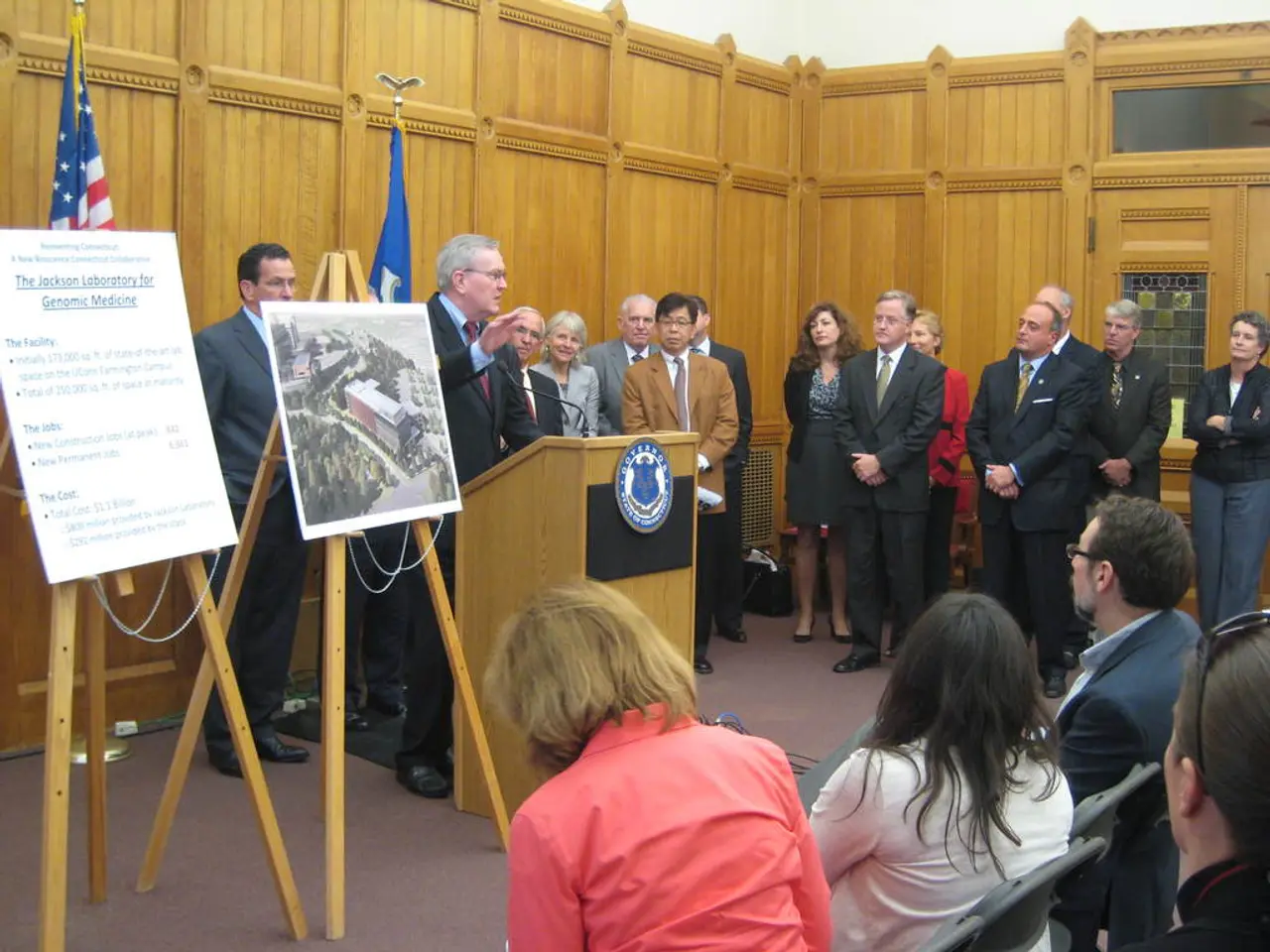Political opposition, the Democrats, are similarly involved in propagandistic tactics
In the early 20th century, Edward Bernays, a pioneer in the field, coined the term 'Public Relations' as an euphemism for propaganda. Bernays had previously worked for the Committee on Public Information during World War I and later founded one of the world's first PR consulting firms. The term 'propaganda', originally neutral, meaning 'to spread', took on a negative connotation due to its association with manipulation, lies, and dictatorial oppression, particularly during Nazi Germany's reign.
Fast forward to 1965, Edmund Gullion introduced the term 'Public Diplomacy', defining it as activities to influence public opinion in other countries and promote national image through strategic communication and cultural exchange. Today, numerous governments, including the USA, Qatar, NATO, and Germany, have departments or divisions dedicated to public diplomacy.
Foreign propaganda, also known as public diplomacy, aims to influence the domestic public. An example of this is the German government's funding of Deutsche Welle, which, like Al Jazeera funded by the Qatari government, employs highly trained journalists working to journalistic standards. These broadcasters strive to 'influence the international media agenda' and 'present the German perspective on current world events'.
However, it's crucial to note that in democratic publics, there is constant exposure to attempts at strategic opinion manipulation from within. This manipulation can originate from the government, parties, companies, and lobby groups, each trying to strengthen their respective agendas through strategic communication.
A countermeasure to limit the power of propaganda is not one-sided counter-propaganda, but diverse knowledge. This is achieved by supporting actors whose main task is not strategic, but to communicate and educate in the service of knowledge dissemination, such as critical science, independent journalism, and political education.
Propaganda can be based on lies, but it often involves selective presentation of facts, strategic omission of relevant information, or framing certain information to serve the interests of the sender. This is why it's essential to encourage critical thinking and media literacy in democratic societies.
Propaganda researcher Jonas Togel believes that the methods of modern propaganda are barely compatible with democratic principles, and strategic communication should be an integral part of democratic education in schools. Communication studies professor Michael Kunczik even considers the distinction between 'Public Diplomacy' and 'propaganda' as 'semantic games'.
In democratic systems, attempts to criminalize oppositional voices and restrict public debate can be observed. For instance, peaceful protests by the climate movement have been banned, cleared with police violence, and activists arrested in Germany.
Lastly, the Israeli government recently increased its foreign ministry's budget by 150 million shekels (about 38 million euros) for public diplomacy, with the purpose of strengthening Israel and its global standing.
In conclusion, understanding the history and evolution of public relations, propaganda, and public diplomacy is crucial for navigating the complex world of information and opinion manipulation. Encouraging critical thinking, media literacy, and diverse knowledge dissemination is key to fostering a healthy democratic public sphere.





